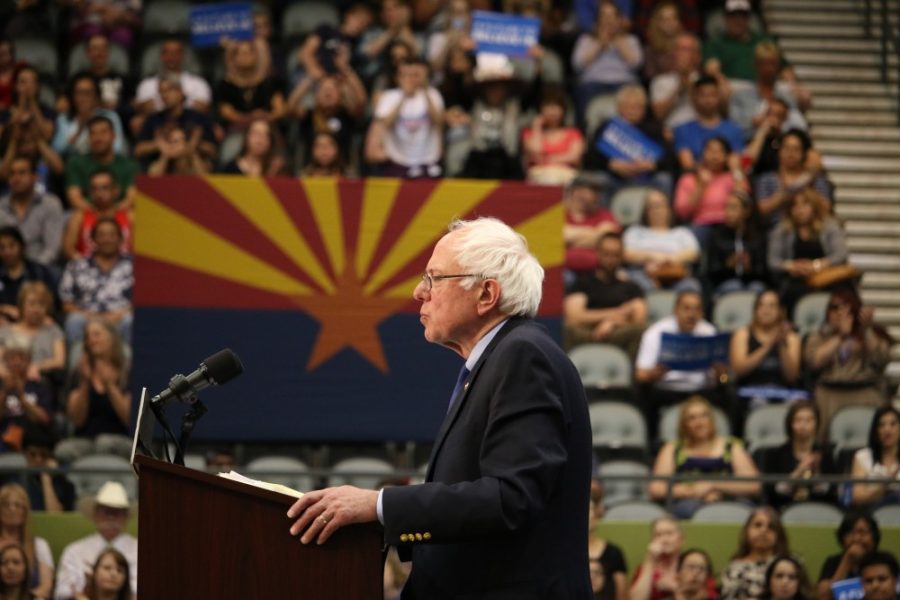The Arizona Presidential Preference Election, better known as the presidential primary, took place Tuesday and it was a fiasco.
The issues that happened because of poor planning and potential voter fraud were ridiculous. Hillary Clinton won with 57.6 percent in the Democratic primary and Donald Trump won the state with 47.1 percent among Republican candidates, but are these numbers truly representative of voters’ interests?
The biggest problem was the number of voting places open in Maricopa County in the greater Phoenix area. There were 200 polling locations in Maricopa County in the 2012 primary. There were only 60 locations open this year. That means there was one polling place for every 21,000 voters. Tucson, in comparison, had more polling places with a total of 130 in Pima County.
There was even evidence of voter discrimination and a disproportionately low number of polling places in Latino neighborhoods. Sen. Martin Quezada wrote, “In my district, there is only one polling place. In my neighboring district, LD 30, there are no polling places.”
Some people were lining up for over four hours to cast their votes. That is unacceptable. Not only is this inconvenient for everyone who came out to vote, but it could have also skewed the demographic of people who were able to cast votes. Arizona had almost 900,000 votes in total, but how many more voters had to leave because the wait was too long?
Those who have busy work schedules, parents who need to look after their children or college students who have classes to attend have to take time out of their schedules to go vote. Sometimes, it’s just not possible to wait in line for three hours in the middle of the day. These people were forced to leave before casting their vote.
This means that those who were able to cast their votes were the people who had enough time to wait. This group probably consisted of more retired seniors, people without children, people who were not in school and those with flexible job hours.
Bernie Sanders is known for his popularity among young voters—especially college students—and this demographic already has the hardest time voting. In addition to those college students who could not vote because they were registered in a different state or county, any student who had a class to get to or homework to complete would not have been able to stand in a line for an exorbitant amount of time on a weekday to cast a vote.
While these people may not have turned the tables on the election, the primary determines the number of delegates a candidate receives, and a few more votes may have meant more delegates.
Many voters who registered as Democrats were listed as independents at polling places all over the state. Arizona has closed primaries, so only voters registered in a party are allowed to vote in that party’s primary. It is outrageous that some people could have done everything correctly by registering and waiting in line for hours only to be told their votes would not count.
When questioned about the grossly limited number of polls, Maricopa County Recorder Helen Purcell first blamed the voters “for getting in line.”
Purcell later adjusted her statement to take responsibility for the debacle, but that does not negate her previous opinion. The point of a democracy is to provide every citizen an equal opportunity to cast their vote, and this did not occur in Arizona on Tuesday.
The primary was an absolute outrage. There is no excuse and the legitimacy of the election needs to be investigated.
A petition has been created on whitehouse.gov to “investigate the voter fraud and voter suppression in Arizona 3/22/2016 Democratic Party.” It already has over 100,000 signatures, meaning the Obama administration must issue an official response.
The overwhelming support of the petition shows that Americans are demanding that everyone get an equal chance to vote. This is what our country was built on, and this how our elections must operate.
Follow Apoorva Bhaskara on Twitter.









